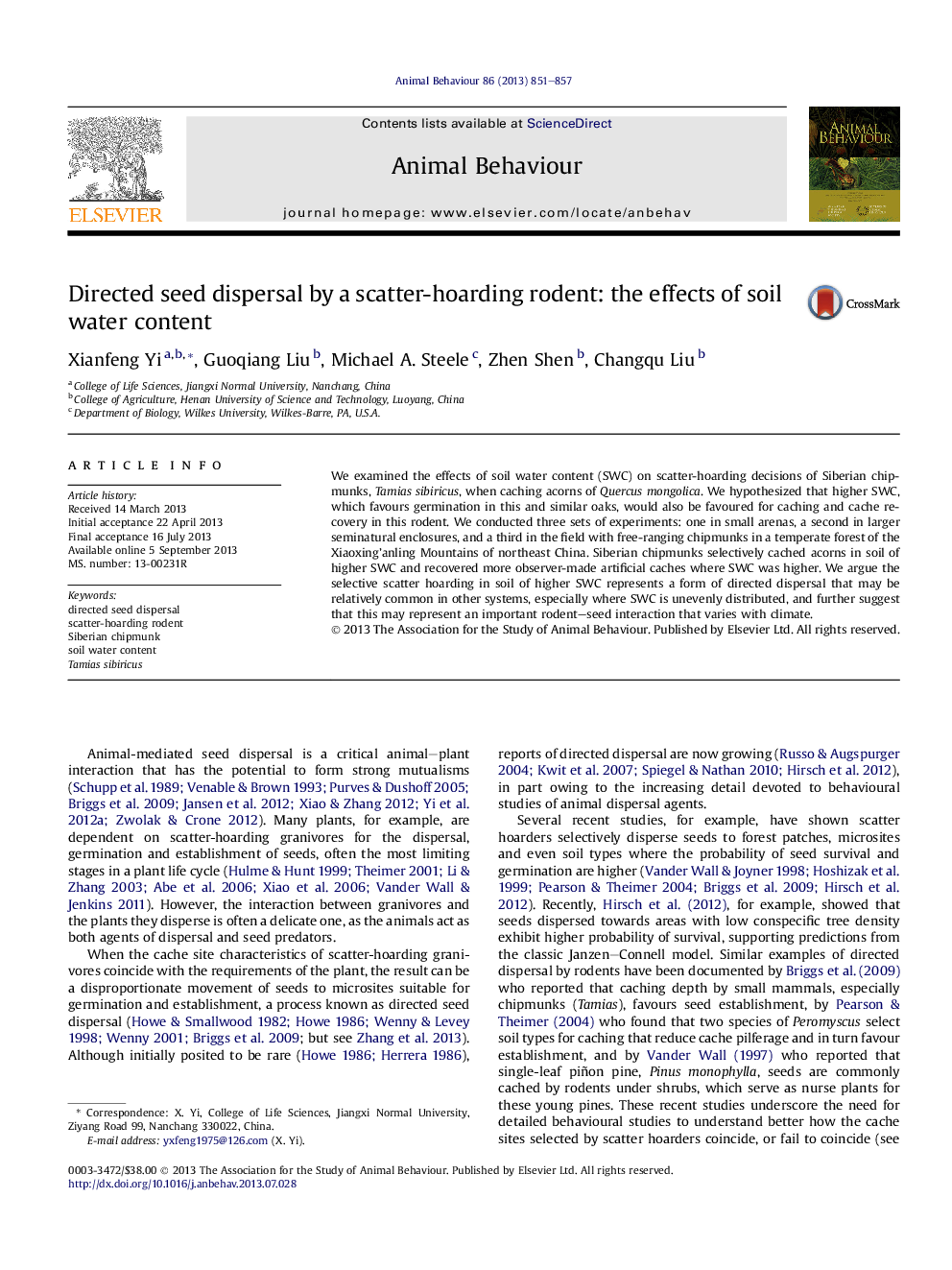| Article ID | Journal | Published Year | Pages | File Type |
|---|---|---|---|---|
| 10970742 | Animal Behaviour | 2013 | 7 Pages |
Abstract
We examined the effects of soil water content (SWC) on scatter-hoarding decisions of Siberian chipmunks, Tamias sibiricus, when caching acorns of Quercus mongolica. We hypothesized that higher SWC, which favours germination in this and similar oaks, would also be favoured for caching and cache recovery in this rodent. We conducted three sets of experiments: one in small arenas, a second in larger seminatural enclosures, and a third in the field with free-ranging chipmunks in a temperate forest of the Xiaoxing'anling Mountains of northeast China. Siberian chipmunks selectively cached acorns in soil of higher SWC and recovered more observer-made artificial caches where SWC was higher. We argue the selective scatter hoarding in soil of higher SWC represents a form of directed dispersal that may be relatively common in other systems, especially where SWC is unevenly distributed, and further suggest that this may represent an important rodent-seed interaction that varies with climate.
Keywords
Related Topics
Life Sciences
Agricultural and Biological Sciences
Animal Science and Zoology
Authors
Xianfeng Yi, Guoqiang Liu, Michael A. Steele, Zhen Shen, Changqu Liu,
